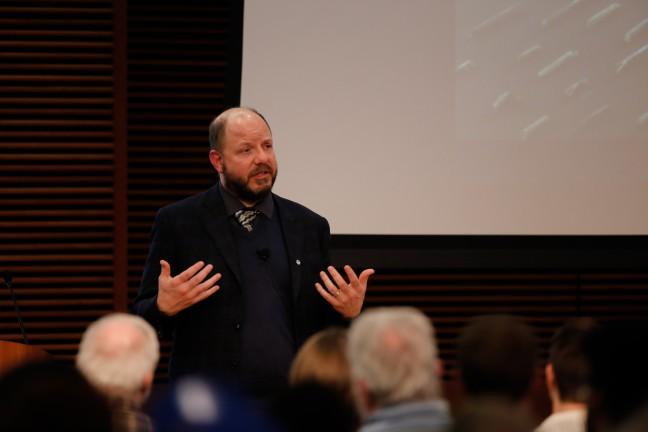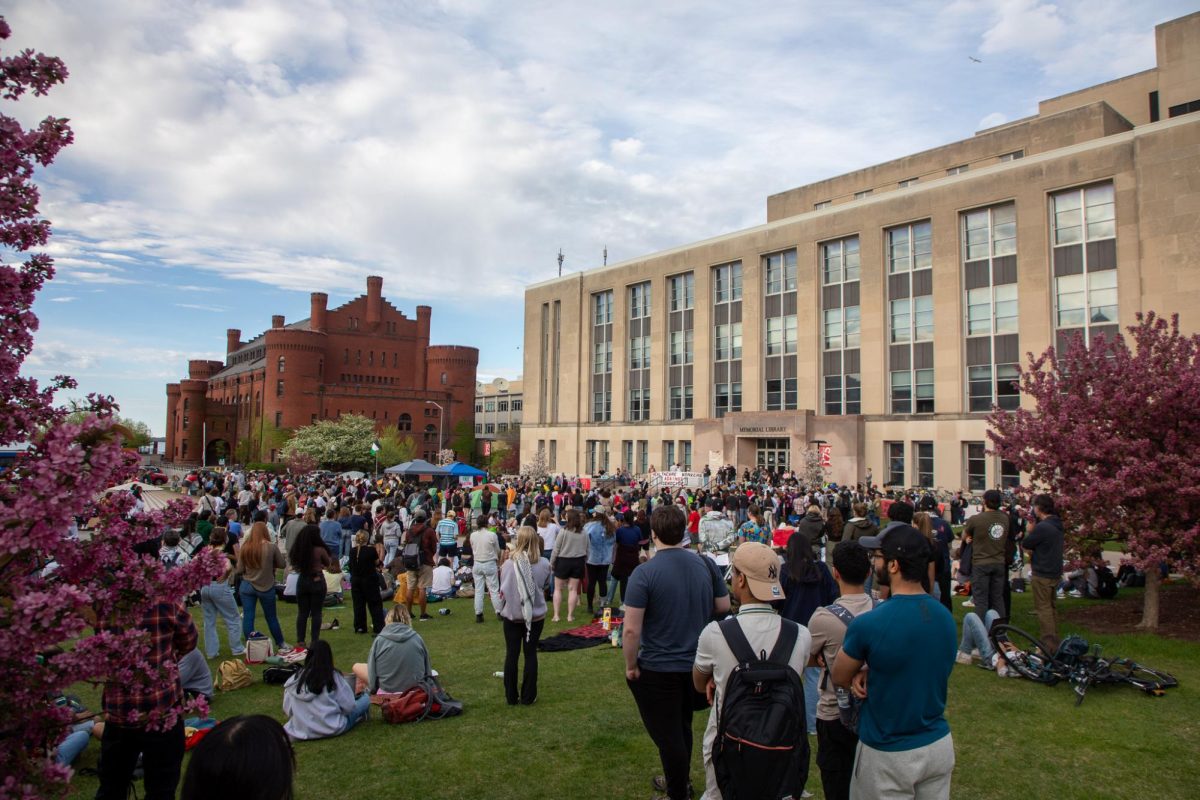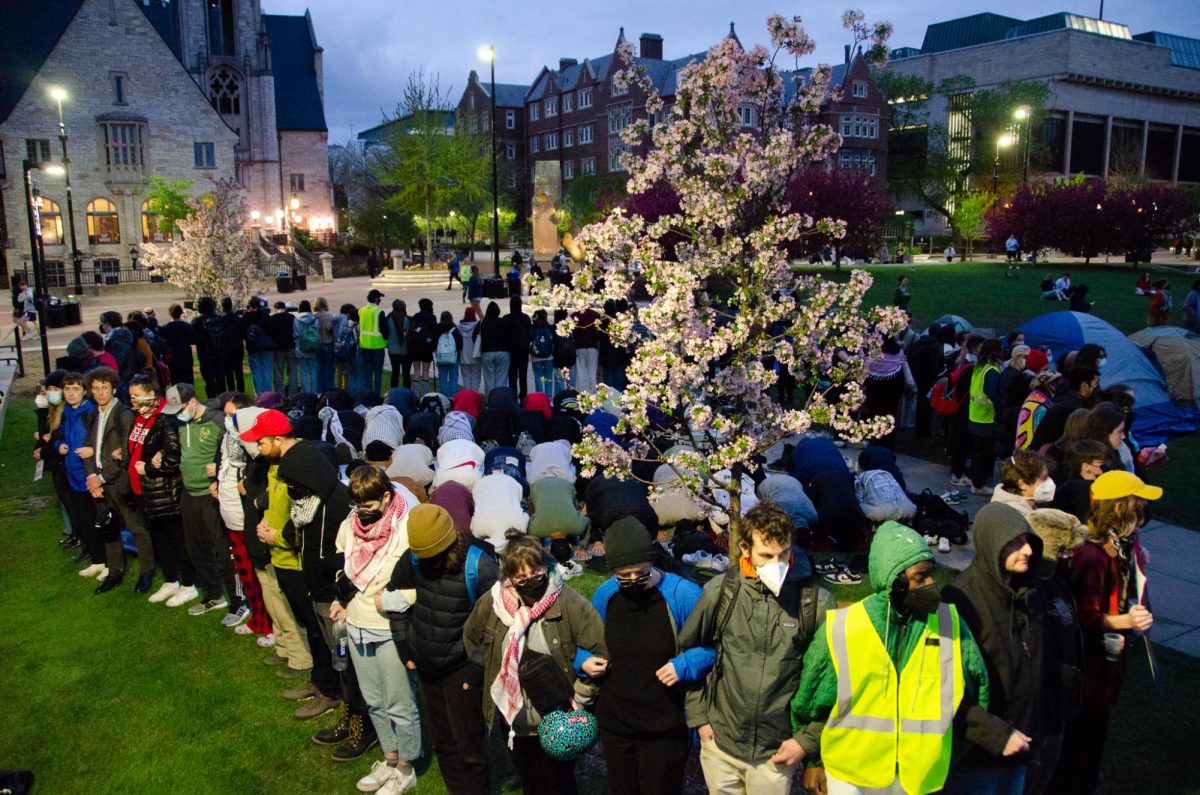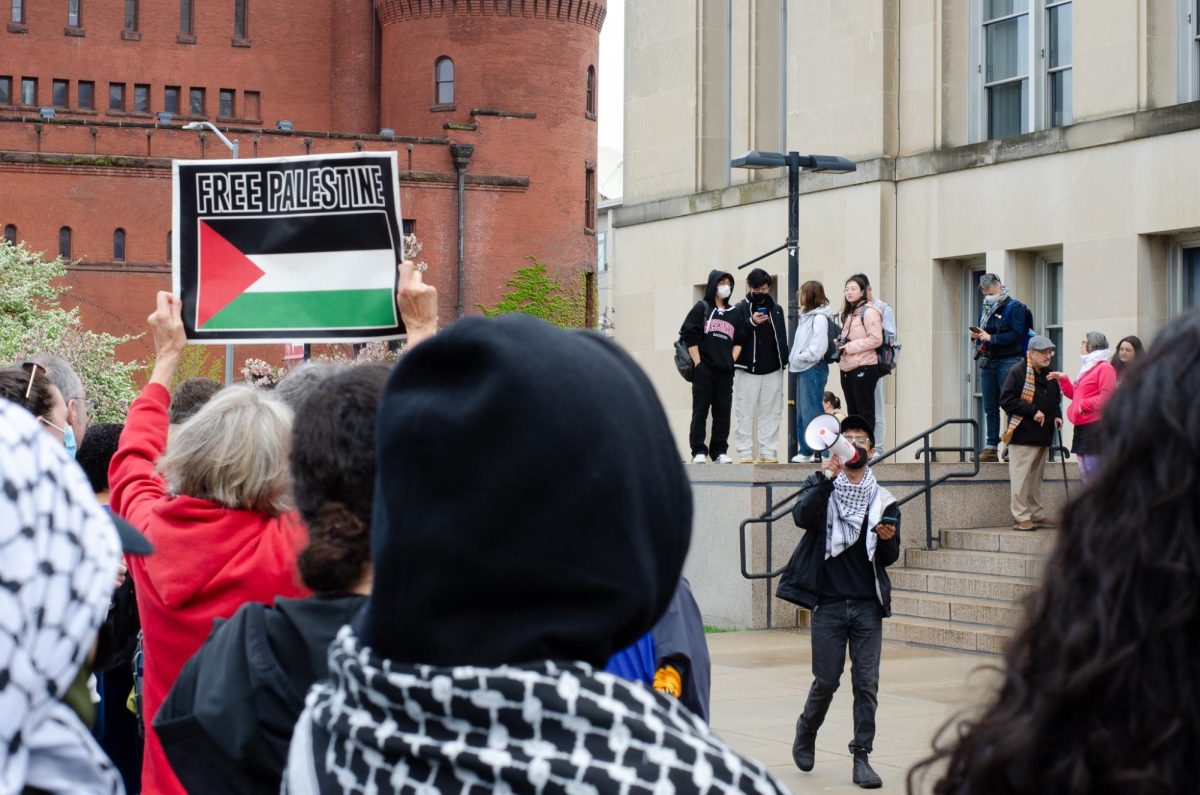In the time since the expedition began in 2013, University of Wisconsin anthropology professor John Hawks has helped collect more than 1,000 bones in South Africa in order to continue the storytelling of humanity.
During the beginning of his professional career in genetics, Hawks said his interest in science evolution as a child played a key role in his later work with the genetic relationships of humans throughout history.
The discovery of Homo Nadeli, a new limb to the human family tree, in early October 2013, he said, was a “unique opportunity” to apply his genetics knowledge to uncovering the fossil evidence.
“We definitely didn’t expect to find what we found. We never expect to find something that is as large as what we found,” Hawks said. “We would’ve been totally thrilled to find part of one skeleton.”
But Hawks found much more than one skeleton.
His team uncovered 15 parts of different skeletons after excavating what he called “a very small amount of what’s in the cave.”
Unearthed: Fossil remains make two UW students a part of biggest find in Africa
The expedition began in November 2013. After assisting the excavation at the Cradle of Humankind in the World Heritage site near Johannesburg, Hawks said his team discovered the previously un-mapped Dinaledi Chamber within the Rising Star cave.
Down in the cramped chamber, which required small female cavers to complete the descent, were bones found to have “clear differences” than existing species which indicated the discovery was, in fact, new, Hawks said.
“The bones were there and it was our good fortune to find them,” Hawk said. “From that point, doing the science is trying to figure out how they’re related to us. How do they connect to things we already know about?”
In finding a large quantity of bones —1,500 hominin specimens — the completeness of the 15 skeletons will “serve as a key” to allow his team to put together smaller, more fragmentary pieces they’ve found at other sites.
As he reflected on his time at UW since he started in 2002, he said developing long-term professional relationships was important when working on “really interesting” projects. But one of the bigger changes, he said, is his ability to incorporate students in these projects.
He said it’s a matter of translating the work for the next generation, and he has done so by turning over the project’s primary analysis duties to early career scientists.
But he said he wants the next generation of researchers as well Monday’s audience to know there are discoveries still to be made.
“I want people to know that there are huge discoveries that are waiting to happen. We are still exploring,” Hawks said. “And this discovery, which is the largest that has ever been made in Africa, is probably the first of a lot of them. We are just in a new age of discovery in paleoanthropology.”

















